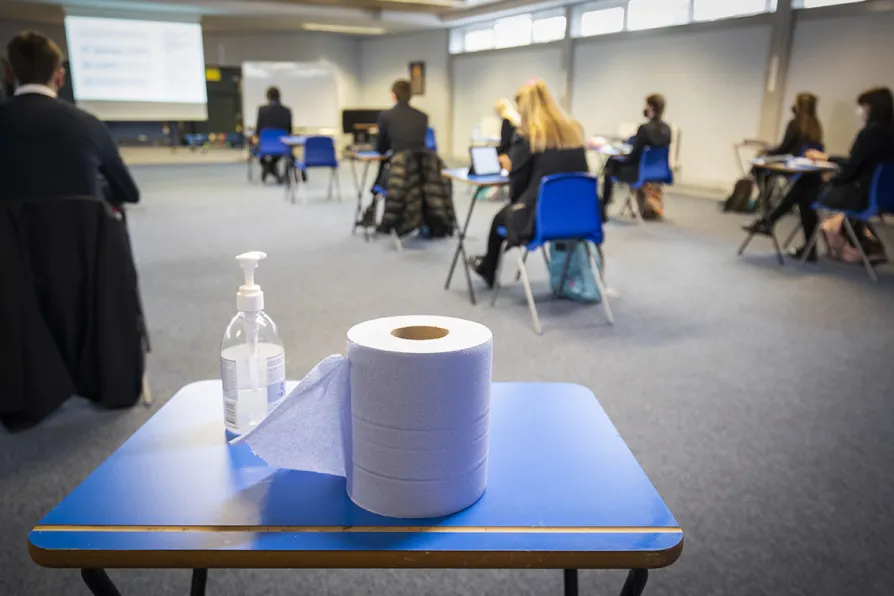
 Hand sanitizer in a classroom at St Andrew's RC Secondary School in Glasgow as more pupils are returning to school in Scotland in the latest phase of lockdown easing, in March 2021
Hand sanitizer in a classroom at St Andrew's RC Secondary School in Glasgow as more pupils are returning to school in Scotland in the latest phase of lockdown easing, in March 2021
PUPILS experienced substantial disruption to their education during the pandemic, a new report into the government’s handling of Covid-19 has found.
The Covid Social Mobility and Opportunities (Cosmo) study, released today, also found greater disruption on average for young people from more deprived backgrounds.
There were “substantial gaps” between private and state secondary schools in the “intensity” of online learning during the first lockdown, the study said.
The private sector was also found to have adapted more quickly, with 96 per cent of private school students getting live online lessons in the first lockdown compared to 65 per cent of state school pupils.
More than half (53 per cent) of pupils who did not have a device well suited for remote learning at the start of the pandemic still did not have one by the end.

NICOLA SARAH HAWKINS explains how an under-regulated introduction of AI into education is already exacerbating inequalities













